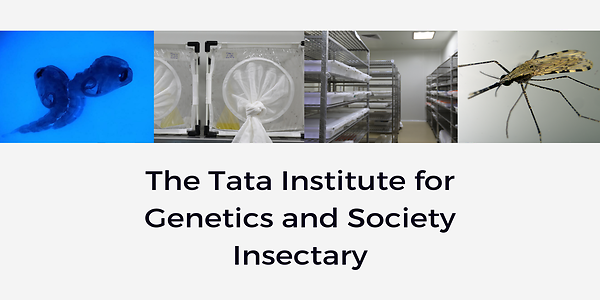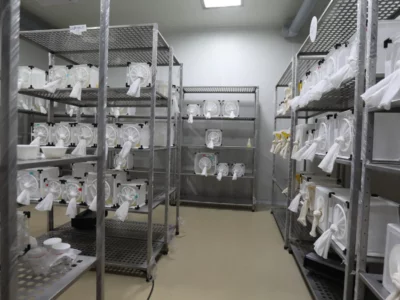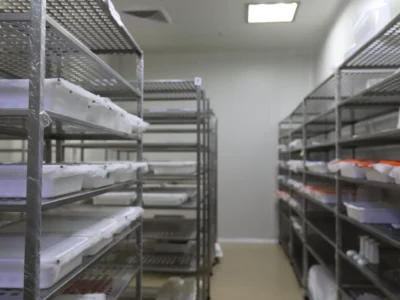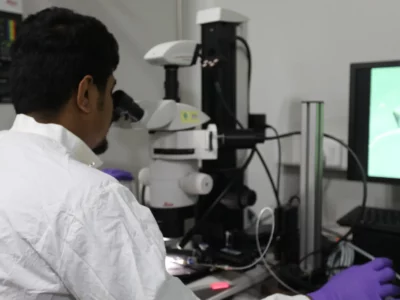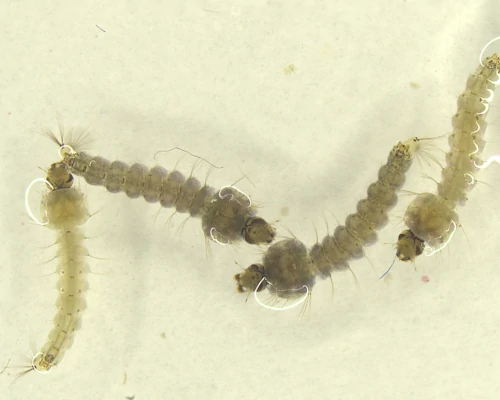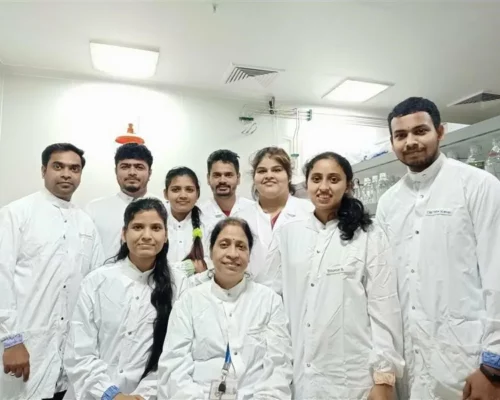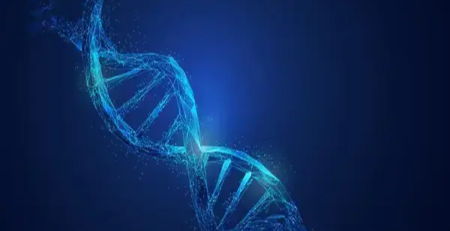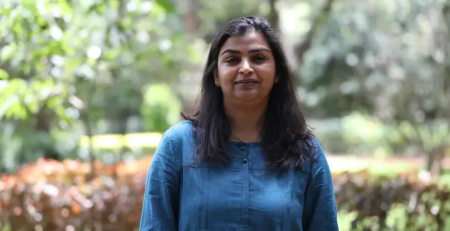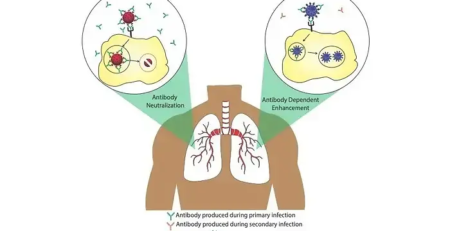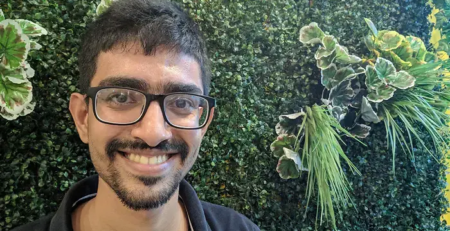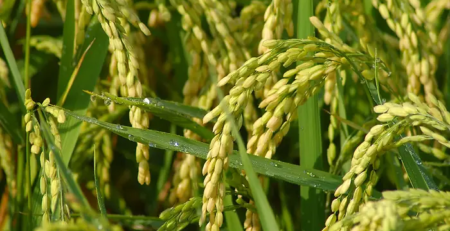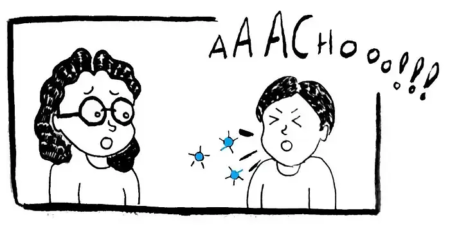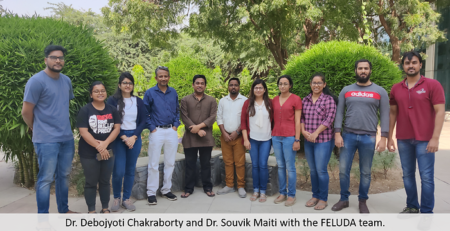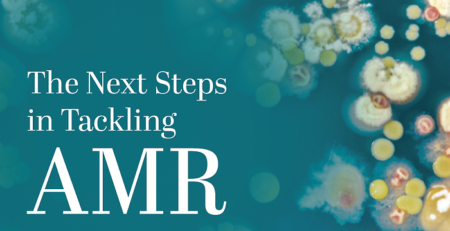Ever since the Tata Institute for Genetics and Society (TIGS) began in 2017, studying the lives, habitats, biology, and behavior of disease-causing mosquitoes has been one of our primary goals. The TIGS Insectary, situated within the Institute for Stem Cell Science and Regenerative Medicine (inStem), Bangalore, has been key in facilitating this research.
The Insectary, a state-of-the-art facility, run by a team of experienced researchers has the capacity to rear large quantities of mosquitoes for research purposes under Insect Biosafety Level (IBSL) 2 as prescribed by the biosafety guidelines in India. The facility has field collected Anopheles stephensi and Aedes aegypti strains and isofemale lines of An. stephensi maintained over several generations. It has separate adult and larval rearing rooms, a parasite lab for undertaking parasite-related studies, and a separate lab space with a microinjection facility for carrying out other experiments. The premises also house an IBSL 3 facility for research on arthropod transmitted viruses. The conditions in each lab can be customized to suit the particular research requirements. These climate-controlled rooms are maintained under negative pressure and have automated dawn and dusk cycling to mimic the natural environment.
The Insectary studies mosquito biology, behavior, and mosquito-parasite interactions; provides services involving mosquito rearing or experiments with mosquitoes and parasites to institutes across India; and provides training on mosquito rearing.
In the last few years, the Insectary team and other scientists at TIGS have been actively working on several research initiatives to study mosquito genomes, structural variations in the genomes and their functional relevance, host-parasite interactions, parasite transmission blocking properties of biomolecules, and the molecular basis of insecticide resistance. The team, in collaboration with the Institute of Bioinformatics and Applied Biotechnology (IBAB), Bangalore, recently published a near-chromosome level genome assembly of An. stephensi, which is available at https://bit.ly/2ZuDDLV.
For more details on the TIGS Insectary or if you would like to collaborate or avail of our services, please write to info@tigs.res.in.

